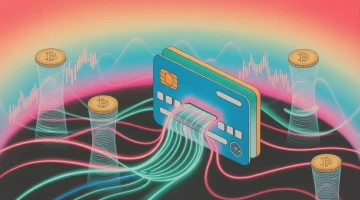Polygon Smart Contract Development – Your Complete Guide

Table of contents:
What Is Polygon and Why Is It Popular?
Polygon is a Layer-2 scaling solution built to enhance Ethereum's capabilities by addressing its common issues like high transaction fees and slow processing times. With Ethereum being the dominant platform for decentralized applications (dApps) and smart contracts, its network often gets congested, leading to delays and expensive gas fees. This is where Polygon comes in.
As of September 9, 2024, Polygon has solidified its position as one of the leading blockchains in the cryptocurrency market. According to the latest data, Polygon takes 7th place among the largest blockchains ranked by Total Value Locked (TVL) – $1.12 billion.
Polygon provides a framework that allows developers to build and connect Ethereum-compatible blockchain networks. Essentially, it makes Ethereum more efficient and scalable while maintaining its security. As a result, Polygon smart contract development has become a popular choice for businesses looking for faster, cheaper, and more scalable blockchain solutions without sacrificing security.
What makes Polygon stand out is its low transaction costs and fast transaction processing, with its Proof-of-Stake (PoS) consensus mechanism ensuring faster block times compared to Ethereum. Polygon’s sidechains run alongside the Ethereum main chain but process transactions independently, greatly improving speed and lowering costs.
This combination of scalability, speed, and low fees has made Polygon smart contract development ideal for companies in industries such as decentralized finance (DeFi), NFTs, gaming, and beyond.
How Polygon Smart Contracts Work
Smart contracts on Polygon function similarly to those on Ethereum. They are self-executing programs with predefined conditions written into code. Once deployed, they run automatically when certain conditions are met, without needing intermediaries.
What sets Polygon smart contract development apart is how it scales operations. On Ethereum, high demand often results in slow processing times and expensive gas fees. Polygon avoids this by processing transactions on its sidechains and syncing them back to Ethereum, greatly reducing congestion. Developers can create smart contracts on Polygon while still benefiting from Ethereum's security through this efficient setup.
Why Choose Polygon for Your Smart Contract Development?
When considering blockchain solutions, Polygon smart contract development offers clear advantages, particularly for businesses aiming to scale. Here's why Polygon stands out and how it addresses common pain points.
Scalability Without Sacrificing Security
One of the most significant challenges for blockchain developers is scalability. Ethereum, for instance, can get congested during peak times, leading to high transaction costs and slow speeds. Polygon solves this problem with its Layer-2 scaling solution, allowing thousands of transactions per second while keeping costs low. This makes Polygon smart contract development perfect for businesses that require fast, high-volume transactions.
For example, DeFi projects that require rapid trading and lending would benefit greatly from Polygon’s scalability. Lower fees and faster confirmations create a seamless experience for end-users, enabling high-frequency transactions that would otherwise be too expensive on Ethereum.
Low Transaction Fees and Cost Efficiency
One of the primary pain points for businesses using Ethereum is the high gas fees. As transaction volumes increase, so do the costs, making it less sustainable for companies needing frequent contract execution. Polygon provides a platform to deliver some of the lowest gas fees in the industry, which is especially important for applications that require frequent interactions with the blockchain, such as NFT minting or decentralized finance transactions.
For instance, launching an NFT marketplace on Ethereum can become prohibitively expensive for users when gas fees spike. By choosing smart contract development on Polygon, these fees are significantly reduced, encouraging more frequent transactions without the heavy costs associated with Ethereum, making the platform more appealing to both developers and users.
Seamless Ethereum Compatibility
Another common issue is transitioning between blockchain networks. Many businesses that start on Ethereum want to scale their operations without leaving the Ethereum ecosystem entirely. Polygon is fully compatible with Ethereum, so any Ethereum-based smart contract can be easily deployed on Polygon with minimal changes.
Polygon smart contract developers can easily move your existing Ethereum smart contracts to Polygon, giving you the best of both worlds — scalability and compatibility. This interoperability lets you use existing Ethereum tools, blockchain wallets, and decentralized apps while benefiting from Polygon's advantages.
Improved User Experience
With lower costs and faster transaction times, businesses can provide a better user experience. Apps built with Polygon smart contract development can attract more users by getting rid of the hurdles of slow transactions and high costs, which are often turn-offs in Ethereum-based systems.
For example, blockchain-based games might need to handle in-game transactions for assets like weapons or character skins. With Polygon’s fast, low-cost transaction processing, players can enjoy a seamless gaming experience without being burdened by long wait times or excessive fees.
High Security and Reliability
As a layer-2 solution, Polygon inherits much of its security from the underlying Ethereum blockchain, providing a high level of assurance for users and developers. Additionally, Polygon employs various security mechanisms, such as fraud proofs and validator consensus, to further strengthen its security. These measures provide a robust and reliable environment for developers and users to build and interact with dApps.
In conclusion, Polygon smart contract development offers a clear path for businesses looking to scale their blockchain operations. With low costs, fast transaction speeds, and Ethereum compatibility, it’s the ideal platform for projects ranging from DeFi applications to NFT marketplaces. By choosing Polygon, you’ll be able to solve common Ethereum blockchain pain points like high gas fees and slow transactions while maintaining security and flexibility.
Polygon Smart Contract Development Use Cases for Your Project
Polygon’s flexible infrastructure makes it ideal for a wide range of use cases across industries. Let’s explore some key areas where Polygon smart contract development can provide powerful solutions:
Token Development
Polygon, being a layer-2 solution for Ethereum, inherits many of Ethereum token development standards. This means that developers can leverage familiar standards to create token on Polygon:
- ERC-20 (Fungible Tokens): If you're looking to create your own cryptocurrency or a utility token for your platform, the ERC-20 standard is the go-to solution. These tokens are interchangeable, meaning each token has the same value.
- ERC-721 (Non-Fungible Tokens - NFTs): For unique, one-of-a-kind crypto assets, ERC-721 is the standard used for NFT development. Whether you're launching an art collection or building a crypto asset marketplace, Polygon smart contract developers can implement ERC-721 to enable cost-effective minting and trading of NFTs.
- ERC-1155 (Multi-Token Contracts): This versatile token standard allows developers to create both fungible and non-fungible tokens within a single contract. This is especially useful for GameFi platforms that need to manage both in-game currency and unique items. Smart contract development on Polygon ensures that your multi-token contracts are executed swiftly and affordably, making it ideal for high-traffic applications.
Crowdsale Development
Polygon's low transaction fees and high throughput make it an excellent choice for running token sales. Crowdsale contracts automate fundraising, providing transparency and security for both project creators and investors.
DeFi Platforms and dApps
Polygon is particularly popular for decentralized finance platforms and decentralized applications:
- DeFi Platforms: Polygon smart contract development has become a go-to for different DeFi solutions like decentralized exchanges development (DEXs), lending platforms, staking and yield farming protocols.
- SocialFi Platforms: Web3 social media platforms allow users to own their data, monetize content, and control privacy. SocialFi applications developed using Polygon smart contracts can give users full control over their interactions, while the blockchain ensures transparency and data security.
Tokenization of Real-World Assets
Another growing trend in blockchain is the tokenization of physical assets. Polygon smart contract development enables businesses to tokenize real-world assets such as real estate, art, and commodities. Through tokenization, ownership of these assets can be fractionalized and traded on-chain, providing more liquidity and investment opportunities.
For instance, a real estate project could issue tokens representing fractional ownership of properties. By using Polygon smart contract development services, the transaction costs associated with buying and selling property shares can be minimized, offering a cost-effective solution for asset trading.
Governance and DAO
Decentralized autonomous organizations (DAOs) rely on governance contracts to allow token holders to vote on decisions regarding the project’s future. Polygon smart contract development can be used to set up governance models where decisions are transparent, community-driven, and executed automatically via smart contracts. This is crucial for decentralized projects looking to foster user participation without centralized control.
For example, a DAO might use Polygon smart contract development services to let users vote on which new features or changes should be implemented in a project, all while ensuring the process remains transparent and secure.
GameFi Development
Polygon has become a leading platform for P2E blockchain gaming, with multiple use cases:
- Game Contracts: GameFi smart contracts manage game logic, handle in-game economies, and interact with NFTs. For example, in a blockchain-based game, you could use Polygon smart contract development to manage player progress, issue rewards, and trade NFTs representing in-game items.
- Prediction Markets: Blockchain-based prediction markets allow users to bet on future outcomes, whether in sports, elections, or other events. Polygon smart contract developers can create secure, low-cost prediction markets that allow seamless user interactions.
The lower transaction fees and fast processing times make Polygon smart contract development ideal for games that require frequent interactions, such as player transactions or real-time multiplayer activities.
Marketplaces Development
Polygon is a powerful platform for creating decentralized marketplaces, whether for NFTs or other crypto assets:
- NFT Marketplaces: Polygon is a favorite among developers for NFT marketplaces development due to its cost-effectiveness and scalability. Users can mint, buy, and sell NFTs at a fraction of the cost compared to Ethereum. Smart contract development on Polygon ensures that the marketplace remains fast and affordable, even as it grows.
- Niche-Specific Decentralized Marketplaces: Polygon can also be used to build marketplaces for a wide range of products and services. Some examples include ReFi marketplaces, decentralized data marketplaces, decentralized real estate marketplaces, and so on.
Whether you're looking to create smart contracts on Polygon for tokenization, governance, or gaming, the platform’s flexibility and efficiency provide an ideal foundation for growth.
Polygon Smart Contract Development Process
When it comes to Polygon smart contract development, the process is systematic, with each step requiring attention to detail, technical expertise, and thorough planning. Let's walk through the key stages from concept to deployment:
1. Define the Project Scope
Before starting the Polygon smart contract development process, it’s essential to clearly define your project's goals and requirements. This phase involves understanding the specific use case, whether it’s for a DeFi platform, token issuance, or a decentralized marketplace.
During this phase, it's crucial to determine the scalability needs of your project. Polygon’s Layer 2 solution offers high throughput, but it’s still important to anticipate traffic spikes and prepare for rapid scaling. For example, if you’re planning to create an NFT marketplace, you need to estimate the volume of transactions to design the architecture accordingly.
2. Smart Contract Design
Once the scope is defined, the next step is to design the smart contract. This includes defining all the functions, permissions, and logic that the smart contract will handle. For instance, if you’re building a token smart contract, you’ll need to outline tokenomics, token creation, transfers, and additional functionality like minting or burning tokens.
While designing, consider the gas fees and performance. Even though Polygon’s gas fees are minimal compared to Ethereum, optimizing the code for efficiency is critical. It’s also important to decide which token standard (ERC-20, ERC-721, etc.) fits your project needs.
3. Smart Contract Development
After finalizing the design, development begins. Smart contract development involves writing code that defines the rules and logic governing the behavior of a contract on a blockchain. This code is typically written in a programming language like Solidity, which is specifically designed for creating smart contracts on the Ethereum Virtual Machine (EVM).
The coding phase involves defining the contract's state variables, functions, and events. State variables store data within the contract, functions define the actions that can be performed on the contract, and events log changes in the contract's state. Polygon smart contract development company will write the code, ensuring that the contract logic is secure and efficient.
4. Testing on Polygon Mumbai Testnet
Before deploying the smart contract on the Polygon mainnet, it’s tested on the Mumbai testnet. This is an important stage to verify that the smart contract works as intended, without risking real funds. Polygon smart contract developers simulate various scenarios, from typical user transactions to edge cases, to ensure the contract behaves predictably under all circumstances.
5. Security Audit
A security audit is a crucial step in Polygon smart contract development. At this stage, independent auditors review the smart contract code to find any vulnerabilities that could be exploited. Audits ensure that the contract is secure from known threats like reentrancy attacks or overflows.
6. Deployment on Polygon Mainnet
Once the contract has been thoroughly tested and audited, it’s ready for deployment on the Polygon mainnet. Deploying to the mainnet makes the contract live, where users can start interacting with it using their crypto wallets or other decentralized applications.
During deployment, the smart contract is broadcast to the Polygon blockchain, where it becomes immutable. The deployment process involves setting up an Ethereum-compatible wallet like MetaMask, which is configured to interact with the Polygon network. Gas fees need to be paid in POL, Polygon’s native token, for the transaction to be processed.
Once the smart contract is deployed, it will generate a contract address. This address allows users and applications to interact with the smart contract, such as sending tokens or participating in decentralized governance.
7. Post-Deployment Monitoring and Maintenance
Even after deployment, the process isn’t entirely complete. Ongoing monitoring ensures that the smart contract functions smoothly. Developers use blockchain explorers like PolygonScan to track contract transactions, monitor performance, and respond to any potential issues.
One of the key features of Polygon is its ability to handle high transaction volumes. However, continuous monitoring helps detect unusual activity, such as a surge in transactions or potential misuse of the contract. Regular updates and optimizations may also be needed, especially as Polygon evolves and introduces new scaling solutions or security features.
Polygon smart contract development follows a systematic process that begins with defining the project’s scope and ends with successful deployment and ongoing maintenance. Whether you are looking to create smart contracts on Polygon for DeFi, tokenization, or NFT platforms, ensuring that each phase is executed with precision will result in a secure and scalable solution.
However, Polygon smart contract development is a complex task that requires professional expertise. That’s why partnering with an experienced Polygon smart contract development company is essential to ensure your project is both secure and successful.
Why Rock’n’Block is a Premier Polygon Smart Contract Development Company
At Rock’n’Block, we specialize in Polygon smart contract development and provide a full range of services that go beyond the basics. With years of experience and expertise in blockchain solutions, we are a trusted partner for businesses looking to create smart contract on Polygon or any other blockchain network. Here's why we stand out:
Extensive Blockchain Expertise
Our team is skilled in a wide range of blockchain technologies. From Ethereum and BNB Chain to TON, Polygon, and others, we have extensive experience in deploying secure and efficient smart contracts across multiple platforms. This multi-chain knowledge allows us to recommend the best network for your specific needs. Whether you're launching a DeFi app or a staking platform, we can guide you on whether Polygon smart contract development is the optimal choice or if another chain may offer unique benefits for your project.
Comprehensive Services Beyond Development
We don’t just build smart contracts. We offer the full development lifecycle of blockchain project development, from conceptualization to ongoing support. This includes:
- Conceptualization: We help you map out your project’s goals, tokenomics, and blockchain strategy.
- Design: We create intuitive and user-friendly interfaces that cater to your target audience. Our designers develop visually appealing and engaging interfaces that align with your brand.
- Crypto Website Development: We specialize in building websites for crypto projects that are optimized for blockchain transactions and user interactions.
- Development: Our expert developers take care of the technical aspects, writing and deploying your smart contracts on Polygon.
- Support: Even after your project is live, we provide continuous support, troubleshooting, and updates to ensure your platform runs smoothly.
Expertise in Polygon Smart Contract Development
Our team of Polygon smart contract developers specializes in building scalable, efficient contracts that meet industry standards. Whether you need token contracts or complex DeFi protocols, we design secure, gas-efficient solutions that leverage Polygon’s capabilities.
Cross-Blockchain Development
We don’t just develop on Polygon – we have experience across multiple blockchains. This cross-chain expertise means that we can offer solutions that integrate different blockchains if necessary. For instance, we can build cross-chain bridges, allowing assets to be transferred seamlessly between networks. This kind of flexibility can be critical for projects that aim to expand beyond one blockchain ecosystem.
Custom, Future-Proof Solutions
Blockchain is a rapidly evolving space, and we stay ahead of the curve. We ensure that the smart contracts we create on Polygon are not only optimized for today's needs but also future-proof. We work closely with you to understand your specific needs and develop solutions that align with your vision.
When you partner with Rock’n’Block, you get more than just a Polygon smart contract development company. You get a team that understands the full lifecycle of your project, from concept to post-launch support, ensuring that every element aligns with your vision. We pride ourselves on being the go-to Polygon smart contract developers, delivering secure, scalable solutions with industry-leading efficiency. Contact us today to discuss your requirements and explore how Rock'n'Block can help you achieve your goals on Polygon!
We ❤️ Development
Follow us on social media to receive the hottest blockchain development updates












%201.webp)



